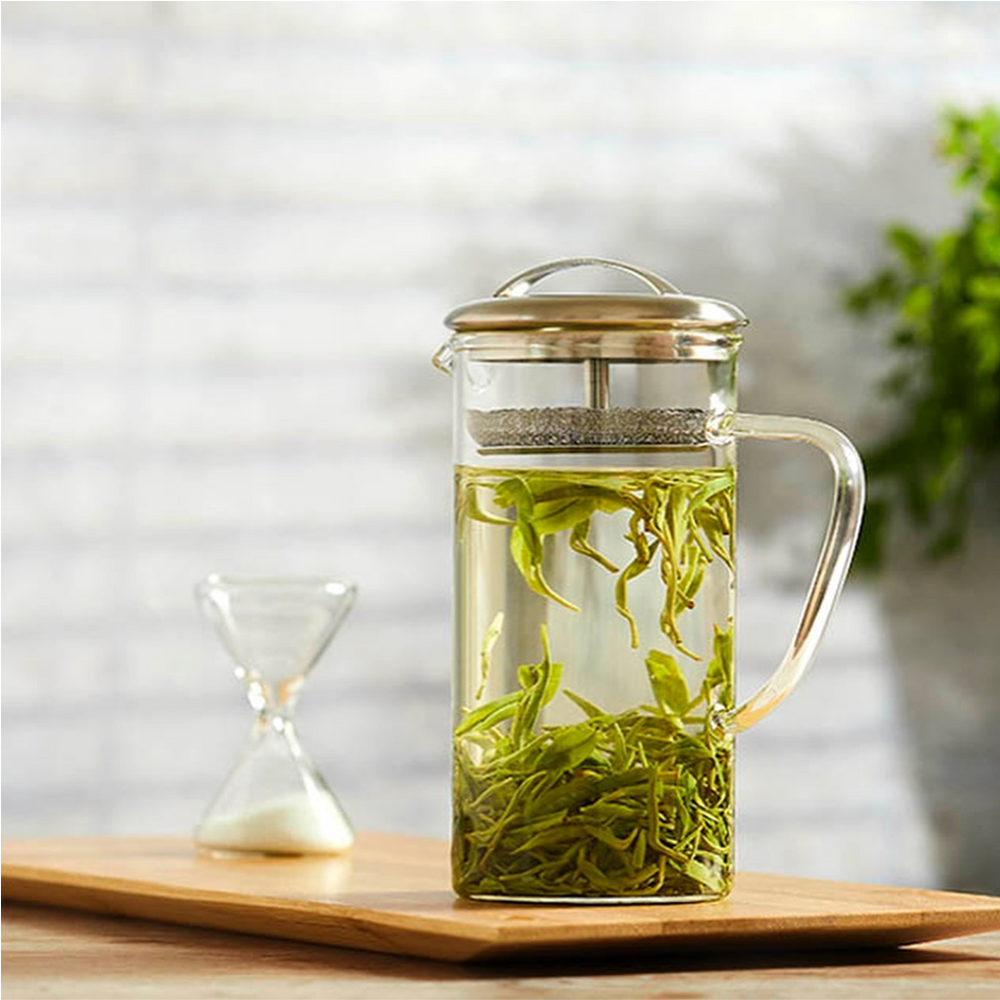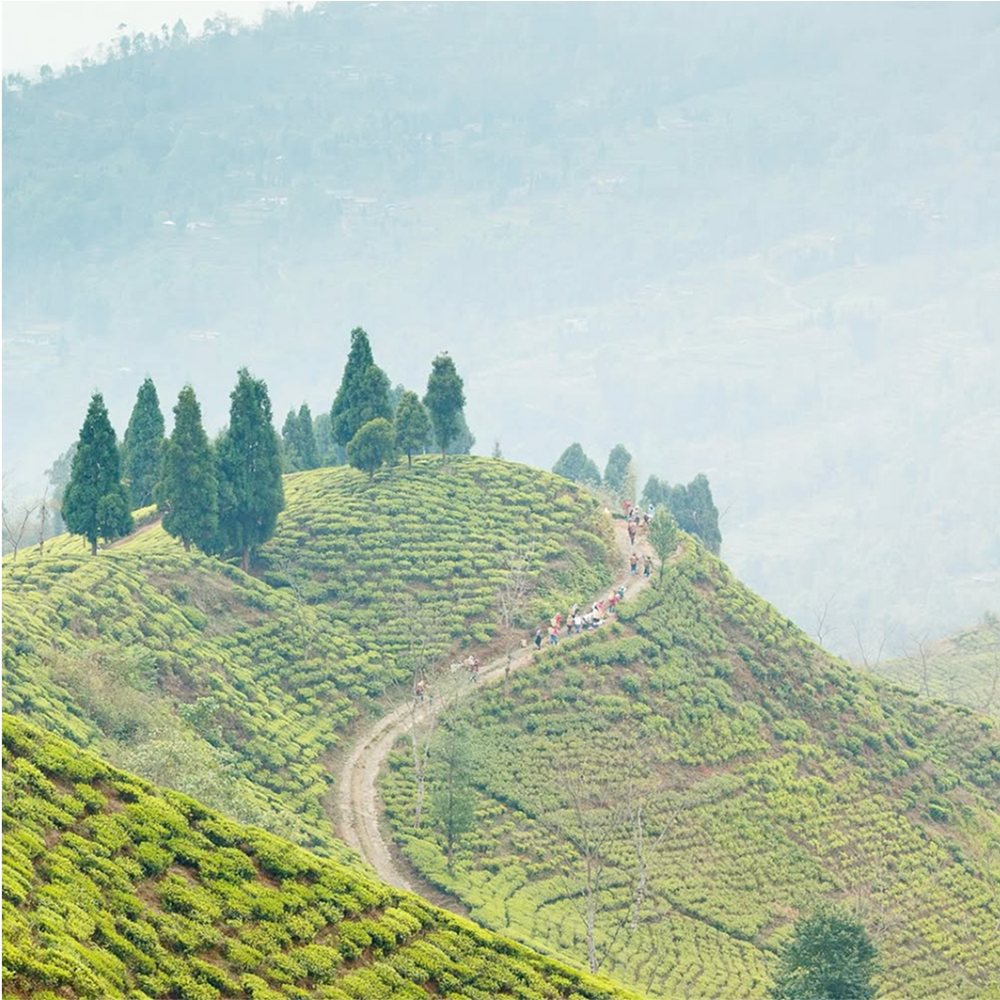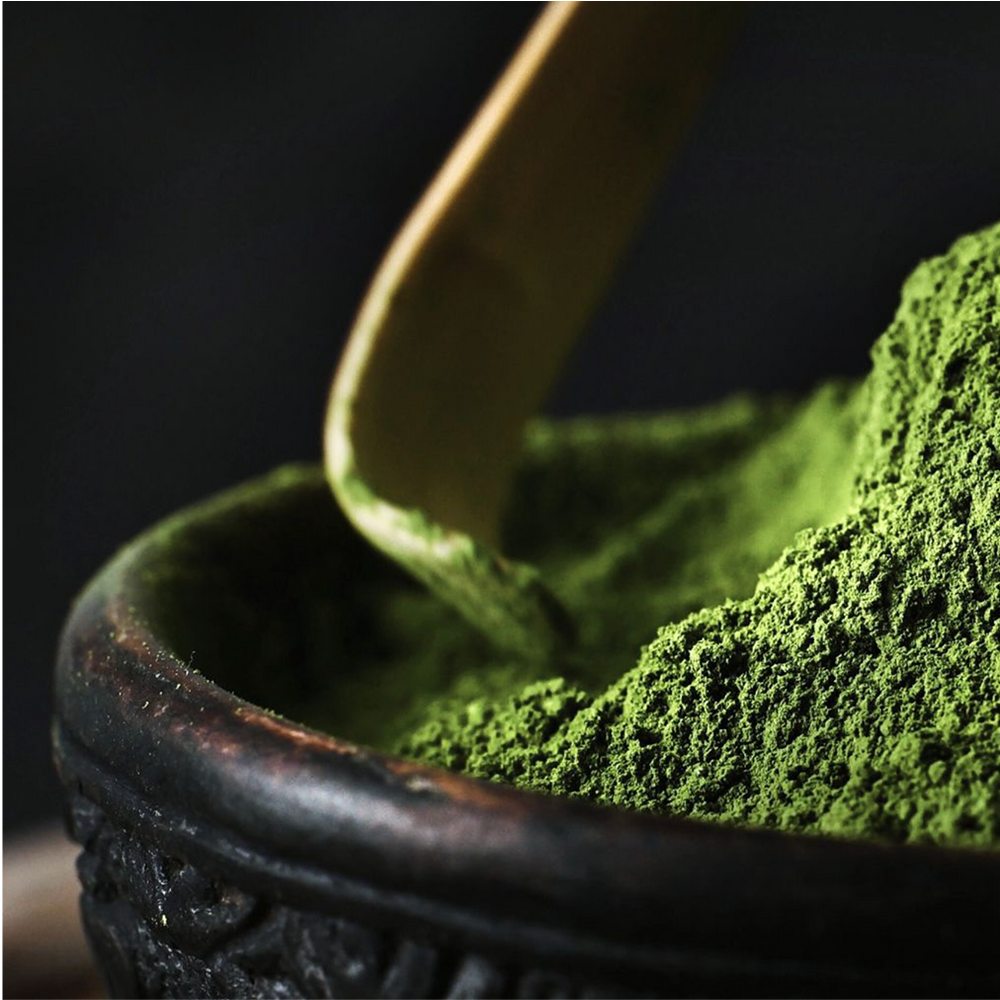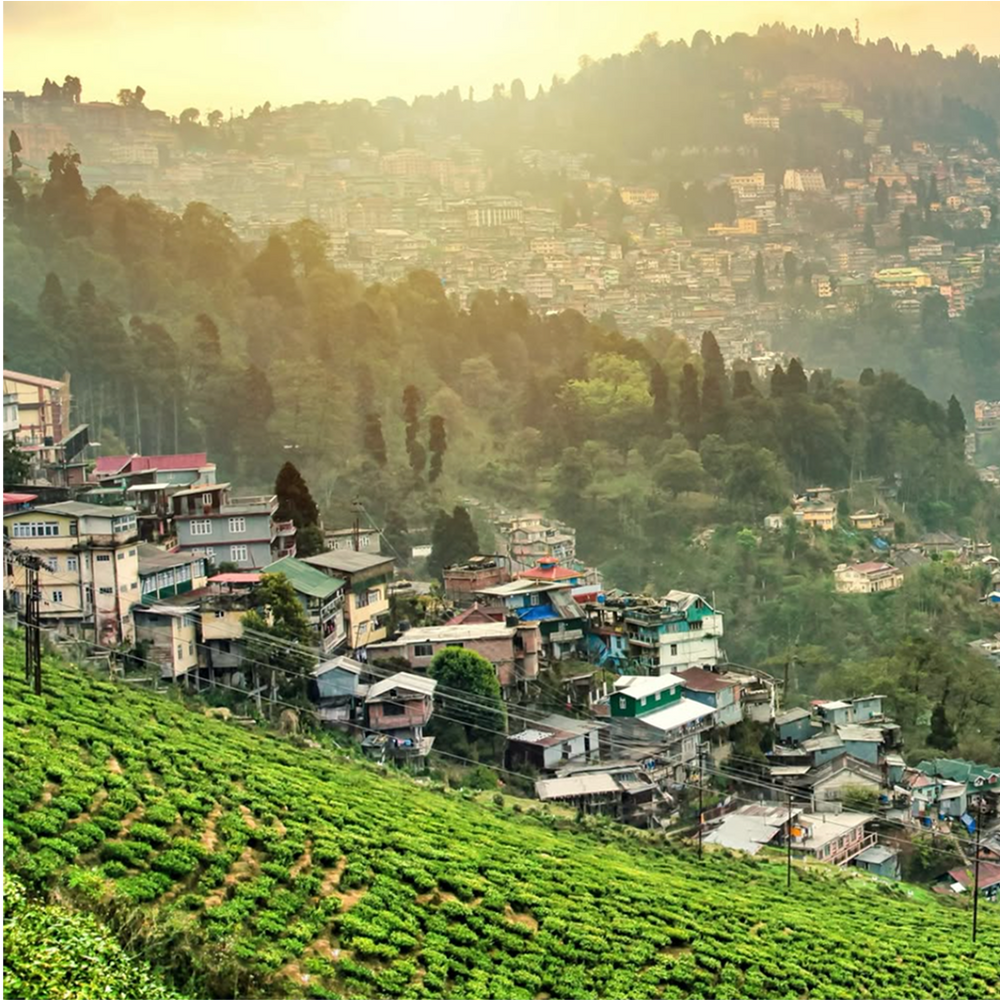The Difference Between White Tea and Black Tea
Let's unravel the differences between white and black tea – two exquisite varieties that promise distinct experiences for your palate and wellbeing.
What is White Tea?
Originating from the mystic landscapes of China, white tea is the epitome of simplicity and purity. This tea undergoes minimal processing; the young buds and leaves are allowed to wither and dry naturally. This minimal oxidation process preserves its delicate character, offering a light, smooth, and subtle flavour profile with hints of sweetness. It’s renowned for its refreshing and ethereal qualities. Try our Jasmine Silver Needle.
What is Black Tea?
In contrast, black tea is a tale of transformation. The fully oxidised leaves develop a bold and robust flavour, celebrated globally for its diverse expressions. India’s Assam, with its malty essence, and Sri Lanka's bright, citrusy Ceylon, are exceptional black tea varieties. Black tea offers a full-bodied experience, rich in aroma and character, perfect for those who savour a more vibrant taste. Explore our Assam Breakfast Tea or Ceylon Breakfast Tea
White Tea vs Black Tea
In a side-by-side comparison, white tea is lighter in caffeine (15-30 mg per cup) and flaunts a pale, golden hue. Meanwhile, black tea offers more caffeine (40-70 mg per cup) and brews into a darker amber. This makes white tea ideal for a gentle beginning, while black tea invigorates and sustains.
Processing
White tea’s simplicity lies in its minimal processing, while black tea’s complexity stems from the oxidation of its rolled leaves, which deepens its distinctive character.
Flavour Profile
The light, delicate notes of white tea contrast with the bold, full-bodied taste of black tea, opening different sensory experiences.
Caffeine Content
Both teas offer varied caffeine levels: white tea being gentler, and black tea more stimulating, accommodating different preferences in refreshment and alertness.
Appearance
White tea's brew resembles dawn's first light, whereas black tea's shades are reminiscent of rich, amber jewels.
The Different Types of White Tea
Discover the nuances in white teas such as the gentle Silver Needle, the robust White Peony, and the earthy Shou Mei. Each type brings unique processing and flavour intricacies to the fore.
The Different Types of Black Tea
Famous black tea varieties span from India's Assam, known for its malty flavour, to China's Yunnan, offering earthy undertones. Each type reflects its origin’s soil, weather, and craftsmanship.
The Benefits from Drinking Black Tea
Renowned for its potential health benefits, black tea may support heart health, enhance focus, offer antioxidant properties, promote oral health, aid digestion, and helpswith blood sugar management.
The Benefits of Drinking White Tea
White tea is equally a treasure trove of wellness benefits. It is thought to aid in weight management, reduces inflammation, fights oxidative stress, promotes oral health, improves digestion, and nurtures skin health.
How to Brew White Tea
For the perfect brew, use water at 70-80°C and infuse for 3-5 minutes. This delicate preparation unveils its gentle aroma and smooth texture.
How to Brew Black Tea
Infuse black tea at 90-100°C for 3-5 minutes to bring out its full-bodied, robust flavour. The precise technique enhances its rich, invigorating essence.
White and black teas are both treasures of nature, offering unique tastes and tales. At JING, each tea is a crafted masterpiece waiting to be discovered. Whether you choose the serene embrace of white tea or the bold presence of black tea, you step into a story that entices with every sip.
Explore more of JING’s Loose Leaf teas to find your perfect match. Let us guide you through flavours that transcend the ordinary.





Leave A Comment